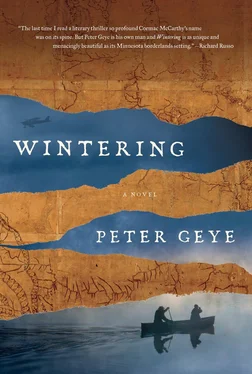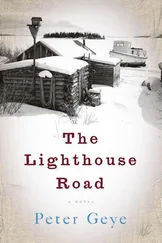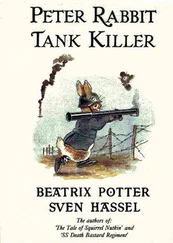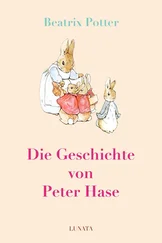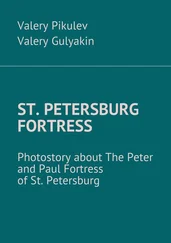It occurred to him more than once that he would never be rescued. That the woods and the night had swallowed him and that he was already lost forever and just didn’t know it yet. He would die curled up under the tree, starved or frozen or both. Years later, it struck him how unlike the bear he was in this respect, how fragile the night made him.
He told me — slowly, very quietly — that he thought often of how many nights had passed between then and now. He allowed that if he’d ever seen any evidence of God it was in his shivering and intermittent sleep that night under the tree. All of it — the fire and snow and stars and moon and darkness all around — hinted at such. But even more than these physical things, it was the feeling that accompanied him as he prayed that tested his doubt. He prayed clumsily, ardently, all through the night. He prayed like a beggar. And he had never felt so alone or so far away or so helpless as when uttering those words. The words themselves he could no longer recall. But the vulnerability alongside them? That feeling stayed with him in the years since, whenever some danger presented itself. And thus he had his religion. And thus his God had always been an orphan to the ones found in the holy books.
—
Gus woke to the sight of his father walking toward him. Walking and then running and then throwing a sleeping sack over him. He kissed him on the cheeks and forehead until Gus pushed him away. Harry pulled off his coat and wedged it under his head. Then he stoked the fire with all the wood that remained, blowing into the embers until the flames grew as tall as he was. He took a chocolate bar from his hip pocket, ripped it open, and broke a piece off, then knelt and put it in Gus’s mouth. His son took the rest of the candy from him and sat up. He guzzled from the canteen and stuffed the rest of the chocolate into his mouth.
“What the hell, bud?” Harry said.
One of the logs toppled from the fire and Gus kicked it back into the flames.
“We’re a long way from the shack,” Harry continued. “And there’s six inches of snow on the ground.”
Gus’s mouth was full of candy. He couldn’t have spoken even if he’d wanted to.
“Your tracks are almost gone. It’s a miracle I found you.” Harry was pressing back tears as he spoke. “If not for the fire, bud, I might not have.” He gazed into the fire and followed the flames as they turned to smoke and rose into the dawn. The sky was purple and clear.
“I shot a bear,” Gus said, wiping chocolate from his chin. “I was tracking it.”
Harry was still staring at the smoke. “And you didn’t notice it getting dark?”
“I—”
“You didn’t notice the snow?” Again he pressed back his tears. “You should’ve known better than to do just about everything you did. I taught you better than that.”
Gus turned away. “Yeah, most of what you taught me isn’t really holding up out here.”
Harry waited for Gus to look back at him. “You’re right about that,” he said when Gus finally met his eyes. “I guess I thought we were back on track.”
“There’s no track,” Gus said. “Not that I see, anyway.”
Harry nodded. He came and sat down next to him.
“I know I shouldn’t have shot the bear. That was stupid.”
Harry nodded again.
“I know I shouldn’t have tracked her till dark. I know all that stuff.”
“You warming any?”
Now Gus nodded. They sat there beside the fire for a long time before Harry said, “There’s something you should see.”
Gus stood and wore the sleeping sack over his shoulders like a cape as he followed his father for a minute or two, until they came to the hilltop. Gus took in the steep drop to a lake that appeared black as coal against the snow-white world around it. Then he noticed tracks along the ridgeline between the bent pines.
He looked at his father, who pointed to where the tracks first appeared and gestured for Gus to move ahead. After twenty paces he was standing beside the dead bear. She was blanketed in snow, her snout resting on her forepaws. They weren’t a hundred yards from where he’d slept the night before.
“There’s your girl.”
Gus could see where his father had brushed the snow away to reveal the bullet wound on the sow’s right flank, where blood had frozen in her matted coat. He knelt and swept the snow from her face. Her eyes were closed.
Gus stood and knocked the snow from his trousers, then looked back at the fire through the woods.
“You okay?” Harry said.
“Yeah. Or I’ll be okay. Why not?”
“Listen,” Harry said. “For everything you did wrong last night — for everything that went wrong last night — there’s one thing you got right. You survived. You did everything right after you got lost.”
“Maybe,” he said.
His father rested a hand on his shoulder and they stood there in silence until Harry took one of the bear’s hind legs and told Gus to grab the other. Together they dragged the bear back to the fire.
Harry said, “You want to learn how to do this?”
“I don’t think so. My plan is never to hunt bear again.”
“You want to keep me company anyway?”
Gus, in answer, sat down by the flames.
His father removed his coat and unbuttoned and rolled up his shirtsleeves, then pulled the knife from his belt. He knelt down and rolled the bear on its back, and sang softly while he went to work. “Un loup hurlant vint près de ma cabane, / Voir si mon feu n’avait plus de boucane, / Je lui ai dit: Retire-toi d’ici, / Car, par ma foi, je perc’rai ton habit!”
When the bear was skinned Harry slit open its gut and yanked the offal from its belly. Soon after, he took the bear’s heart from its chest and offered it to Gus. “Freddy Riverfish would say to take a bite. You want one?”
“No way,” Gus said. “That isn’t happening.”
Harry’s smile was mischievous. He raised the bear’s heart up to the morning sun, then brought it down to his open mouth.
“I CAN’T IMAGINE why you’d want to spend another minute in here.” This was Gus talking. We stood again in the apothecary, on the main floor. “All this dust. Everything faded and worn.” He shook his head. “It’s ghostly.”
“Ghosts are the stuff of dreams, Gus.”
“This place is a dream,” he said.
He by then had taken on the countenance of someone wearied by his own story. I thought he might say something more about his father and their winter — there was almost never a preamble, and he started each memory like a man running out of a burning house — but instead he said something that surprised me. “It’s always bothered me that my father had to spend his childhood living in the fish house. Poor as a peasant. While she lived here. Feeding filet mignon to those dogs of hers. Starting fires with ten-dollar bills.”
“All that money, Gus, what did it buy her?”
“Hey, she was warm at night. She didn’t have to spend her time worrying about which way the wind was blowing.”
“Fortunes turn, though, don’t they? Just look at you and your sister. Consider the legacy of Rebekah and Hosea Grimm and put yours next to theirs. I don’t need to point out that the same building you think your father must have pined away for is one that your sister just gave away. Not sold, given. Your family name will be right above the door.”
“We’ve come honestly by what’s ours, Berit.”
“Oh, I know that. Of course I do. But that sign came at a price and Thea Eide — your great-grandmother — paid it. Odd Eide paid it. Your father, he paid it, too. You’re paying some yourself, no doubt.”
He looked at me.
“Other people paid other prices, Gus. That’s all I want to say. I don’t mean to harp. But there’s not a soul in this town who doesn’t owe something to their neighbor.”
Читать дальше
